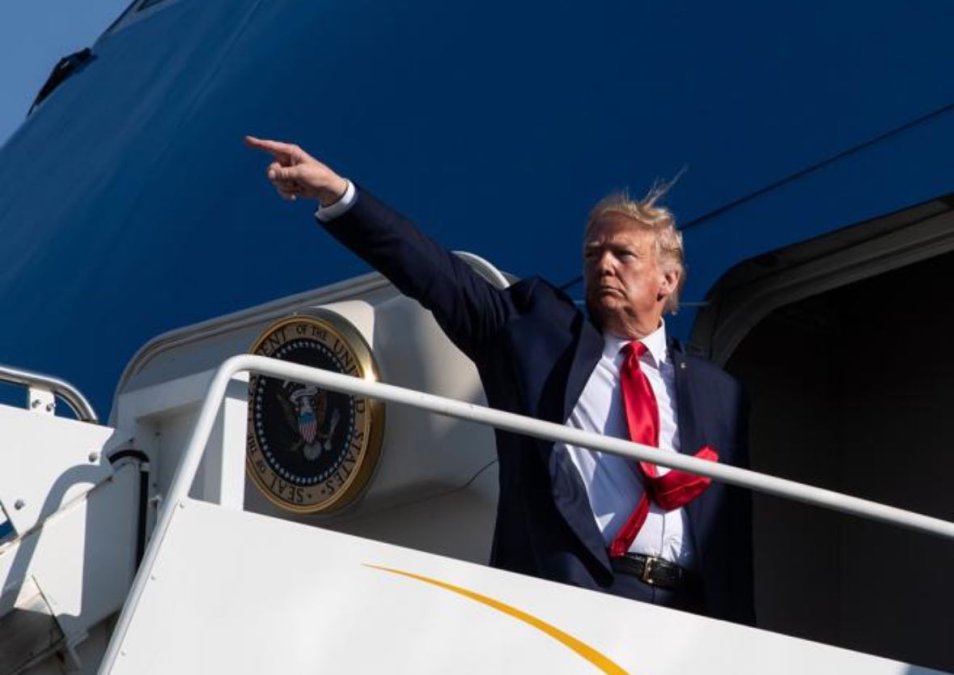Trump’s First Trip to the Desert
Trump’s First Trip to the Desert
Donald Trump, the President of the United States, is planning a trip to Saudi Arabia in mid-May 2026, late May 2026.
This trip is set to be his first international journey in his second term as president.
This information comes from two American officials and a source familiar with Trump’s travel plans.
Previously, during his first term as president, Trump also made his first foreign trip to Saudi Arabia in 2017, a visit that was warmly received by Saudi officials and accompanied by multi-billion dollar trade deals.
Informed sources say that the decision to repeat this pattern in the second term indicates the strategic importance of U.S.-Saudi relations for Trump’s new administration.
According to one American official, this trip is part of the administration’s initial efforts to strengthen relations with key allies in the Middle East and advance U.S. economic and security goals.
The focus of this trip is expected to be on expanding trade cooperation, especially in the fields of energy and arms, as well as coordinating on regional issues like countering Iran’s influence.
A source close to the planning of this trip told Axios that Trump wants to send a clear message to allies and rivals that America will once again have an active and strong presence in the Middle East.
The source added that talks with Saudi officials have intensified in recent weeks and that Crown Prince Mohammed bin Salman is likely to be the main host of the meeting.
During Trump’s first term, the trip to Saudi Arabia led to agreements worth over $110 billion in arms sales and joint investments.
Analysts believe that similar agreements might be seen in this trip as well, especially considering Trump’s recent statements that made Saudi investment in the U.S. a condition for the trip. The exact details of the trip’s agenda have not been announced yet, but it is expected to include high-level meetings with King Salman and Crown Prince Mohammed bin Salman. The White House has not yet responded to requests for an official comment on this report.
Trump and his first trip to Saudi Arabia in May 2025
Trump likely chose Saudi Arabia for his first foreign trip for several reasons. Historically, during his first term in 2017, he made his first trip to Saudi Arabia, which was accompanied by economic and diplomatic successes, including large arms and trade deals. This history could be a motivation to repeat this choice.
Economic Interests: Saudi Arabia is one of America’s largest trading partners in the region. Trump’s recent statements, conditioning the trip on a trillion-dollar investment by Riyadh in the U.S., indicate his priority to strengthen the U.S. economy through relations with the Saudis.
Strategic Importance: Saudi Arabia, as a key ally in the Middle East, plays a pivotal role in countering Iran’s influence and maintaining the stability of energy markets.
This trip could be an effort to rebuild regional alliances that were weakened during Joe Biden’s tenure.
Political Message: Choosing Saudi Arabia as the first destination sends a message to allies and rivals like Iran and China that the Trump administration intends to have a strong presence in the Middle East.
The Role of His Son-in-Law Jared Kushner in These Relations
Jared Kushner, Trump’s son-in-law and former senior advisor during his first term, established close relations with Saudi Crown Prince Mohammed bin Salman.
He played a role in the negotiations leading to the Abraham Accords, normalizing relations between some Arab countries and Israel, and his personal connection with bin Salman helped strengthen U.S.-Saudi relations.
Although Kushner is not officially part of the government now, his influence on Trump’s decisions is likely, especially on Middle Eastern issues.
After Trump’s first term ended, reports emerged that Kushner’s private investment firm, Affinity Partners, received $2 billion from Saudi Arabia’s Public Investment Fund (PIF) in 2022.
This investment, which some view as a reward for support during Trump’s term, indicates potential financial ties between Kushner and Saudi officials.
However, there is no concrete evidence that this particular trip is directly linked to Kushner’s business interests.
Kushner might play an informal role in initial coordination, but this is currently speculative.
The View of Other Arab Countries on Trump’s Trip
United Arab Emirates and Bahrain: These countries, which joined the Abraham Accords with Trump’s mediation in 2020 to normalize relations with Israel, are likely to welcome this trip.
Strengthening U.S.-Saudi relations could help solidify anti-Iranian coalitions and support further normalization projects.
Qatar: Relations between Qatar and Saudi Arabia have improved in recent years, but Doha may view this trip cautiously as it prefers to maintain a balance between its relations with the U.S., Saudi Arabia, and Iran.
Egypt and Jordan: These countries, which have economic and security dependencies on the U.S. and Saudi Arabia, see this trip as an opportunity to strengthen regional stability but may worry about the excessive focus on the U.S.-Saudi axis overshadowing their interests.
Iran and Its Allies: From Iran’s perspective and groups like the Houthis in Yemen, this trip signals increased U.S. and Saudi pressures against them and may provoke negative diplomatic or military reactions.
Overall Assessment: U.S.-allied Arab countries see this trip as a positive step towards reviving U.S. leadership in the region, but some may worry that the focus on Saudi Arabia shifts the regional power balance in Riyadh’s favor.

